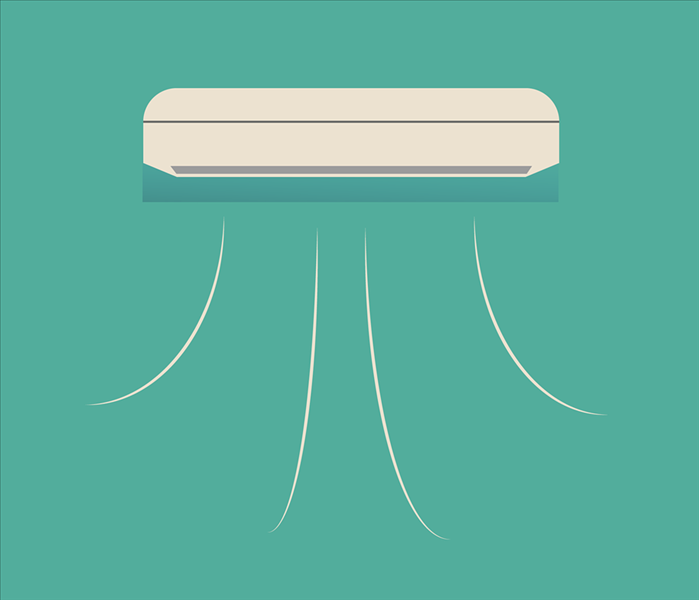Understanding HVAC Systems
5/11/2020 (Permalink)
HVAC (heating, ventilation, and air conditioning) systems will soon be kicking into gear to keep businesses cool during the hot and humid summer season ahead. When used frequently, HVAC systems can be fire hazards. Commercial fires can have many origins, including cooking equipment complications, electrical circuit malfunctions, or even careless mistakes. Fires caused by HVAC complications are not incredibly common, but the damage can be devastating, so it is important to gain an understanding of the common hazards of HVAC systems in order to most effectively protect your commercial business from damage.
Three Common Hazards
The first of the three common fire hazards associated with HVAC systems that will be discussed is a leaking fuel line. When flammable fuels, such as petroleum, gas, and oil, leak out of an HVAC unit, they may ignite, thus increasing the likelihood of a fire. Regular maintenance is helpful in preventing this type of HVAC fire hazard, as leaking fuel lines can be difficult to detect otherwise.
A second common hazard is compromised electrical connections within the HVAC unit. As they become older, connections loosen, which can result in burnt or exposed electrical wires. These loose connections can be the catalyst of HVAC fires. Such fires often smell like burning plastic and therefore, this smell can be an early warning sign of this type of fire.
Finally, clutter in the area surrounding your HVAC unit can not only risk damage to the unit, but it can also increase the probability of a fire that ignites within an HVAC unit spreading to other areas of your commercial business. HVAC units are often stored in closets or other types of storage areas. Therefore, objects such as crates, boxes, cleaning supplies, or other equipment may be situated in close proximity to the unit. These surrounding objects can damage the HVAC unit itself and in the event of the unit catching fire, these objects can quickly and easily catch fire like a line of dominoes falling, spreading the fire to other areas of your business. This spread can make for an even larger, more devastating fire in your commercial business.
Experienced a Fire?
If your commercial business has experienced an HVAC fire and is left with fire damage and resulting water damage from emergency cleanup, contact SERVPRO. Our highly trained fire and water damage restoration specialists are here to your commercial business back up on its feet as quickly as possible.





 24/7 Emergency Service
24/7 Emergency Service
